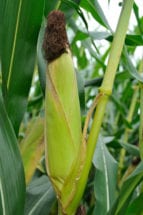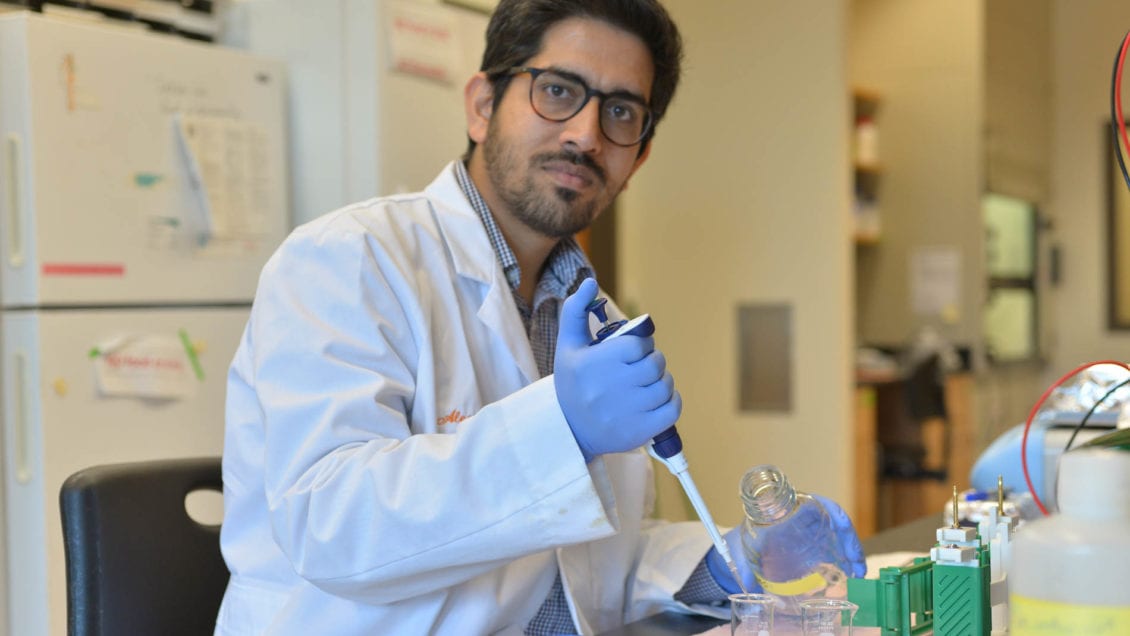Rohit Kumar has been named the recipient of the Clemson University Postdoctoral Association’s 2021 Distinguished Postdoctoral Award for his efforts to understand how to extend the productive life of food crops.
Kumar works in the laboratory of Rajandeep Sekhon, an associate professor of genetics and biochemistry in the University’s College of Science. In his application for the award, Kumar described his overall research focus as applying “the multi-omics approach to understand the genetics of complex traits underlying nutritional value and abiotic stress tolerance to develop climate-resistant crop plants.”
Kumar’s research at Clemson has focused on understanding the regulatory systems that govern senescence and stalk lodging in corn. Senescence is the process of biological aging. Lodging refers to stalk breakage below the corn ear. Lodging reduces the U.S. corn crop by as much as 25 percent annually.
Sustainable food security
“My interest is to serve society by contributing to sustainable food security for the growing world population,” Kumar said of the impetus for his research. “I was interested to study the complex traits [in plants], and then Dr. Sekhon gave me the opportunity to work on the senescence and stalk-lodging project.”

Since his arrival at Clemson, Kumar has authored or coauthored five peer-reviewed publications in a variety of scholarly journals, including the journals The Plant Cell, and Plant, Cell & Environment.
Sekhon said the work could help improve yields for a wide range of annual crops, including corn, soybeans, rice and wheat.
“These crops only survive for one season, and even then, their lifespan is limited,” Sekhon explained. “During that lifespan, the most important thing the plants do for us is to convert solar energy into chemical energy through photosynthesis, which is what basically sustains us.”
The scientists’ hope is to unlock the complex traits that determine when the process of senescence begins to cause plants to shut down. By understanding the mechanisms of cellular aging, they hope to increase crop yields.
“Essentially there is time for the plants to keep on doing photosynthesis, to keep producing,” Sekhon said. “Our big idea is that if we can delay senescence, that can lead to the production of more chemical energy for human consumption.”
Teaching and service
Christopher A. Saski, an associate professor in the Department of Plant and Environmental Sciences in the College of Agriculture, Forestry and Life Sciences, has coauthored three of the five publications in which Kumar has also been involved.
In a letter of recommendation for the Distinguished Postdoctoral Award, Saski praised Kumar, noting his productivity in research, teaching and service: “In Dr. Kumar’s first authored work, he unraveled the interaction between sugar portioning and source-sink transitions [that] determine senescence in maize. This work has led to a better understanding of senescence and suggests genetic approaches to delay senescence that can lead to better crop yield, a critical trait.”
Sekhon added, “Dr. Kumar is an outstanding young scientist with a steady upward trajectory. He has made exceptional contributions to the field of maize genetics and genomics.”
Kumar said he was pleased to receive the honor, which he described as motivational.
“I am very excited and very humbled to receive this award,” Kumar said. “Getting this honor will encourage me to do my best in my research, to be more engaged in my work. And it will give me motivation in my personal life, also. I am thankful to Clemson University, my family and my colleagues”
Get in touch and we will connect you with the author or another expert.
Or email us at news@clemson.edu

